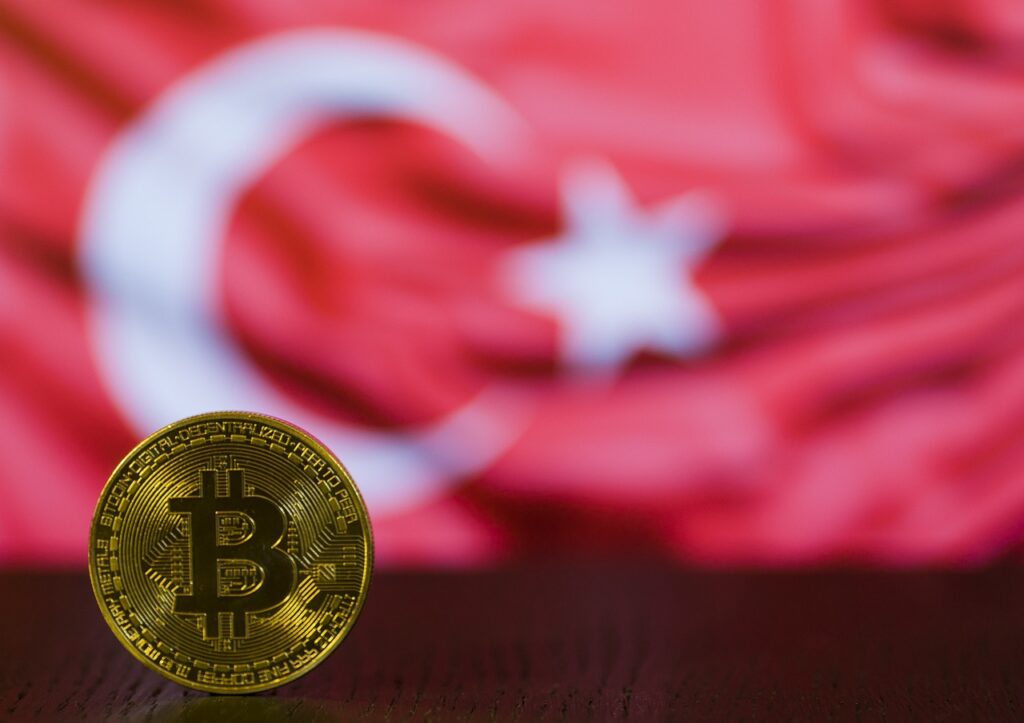Why Crypto Is So Popular in Turkey: Basically a Savior
Advocates claim that in Turkey, cryptocurrencies stand for freedom from things like national currencies, inflation, and business life restrictions.
The year hasn’t been kind to cryptocurrency. Prices have plummeted, projects have fallen through, and businesses are firing staff members. Bitcoin does not appear to be serving as the inflation hedge it was intended to in the United States. It hasn’t offered protection from the turbulence of the stock market either. What exactly is the purpose of cryptography, one might wonder? Some of the solutions come from nations like Turkey. After having chats with about 20 members of the Turkish crypto community, I got a picture of a society where cryptocurrency is not just a pastime but rather a necessity.
Istanbul is experiencing a real crypto fever. There are several tiny establishments in the vicinity of the Grand Bazaar where you may go in and convert cash for bitcoin (BTC) or tether (USDT). At the airport in Istanbul, according to a colleague of mine, a sizable crypto advertisement caught her eye right away. One of the biggest cryptocurrency exchanges in Turkey, Paribu, said in a 2022 research report that at least 8 million people in Turkey are involved in the industry. President Recep Tayyip Erdogan highlighted the benefits of the technology’s blockchain while advising young people against engaging in Bitcoin gaming. Additionally, he stated that Turkey aspired to be a creator rather than a consumer of digital goods.
Naturally, Turkey is not exempt from the global crypto market slump. Paribu’s 2022 research reports that the exchange’s daily transaction volume will be $145 million, down from $850 million in 2021. However, community interest is still quite high. The Ethereum development community in Turkey is pushing for Devcon, the largest developer conference, to take place in Istanbul.
Cryptocurrency has been referred to in several pieces in the mainstream media as a haven from Turkey’s exorbitant inflation and sharp devaluation of the lira. Although it plays a significant role in this tale, the depreciating lira cannot account for all of crypto’s attractiveness in the country. Cryptocurrency in Turkey is viewed as a symbol of freedom from governmental economic policies, the national currency, and even the restrictions of the business world.
Currency woes
Let’s begin with the lira first. Despite some experts’ estimates to the contrary, Turkey’s inflation rate recently hit 83%, a 24-year high. In line with the government’s unconventional policy of lowering interest rates, the lira also hit a record low versus the US dollar. While the administration has cited attacks by “foreign financial tools,” critics blame the government’s monetary policy for inflation.
Anecdotes abound and the suffering is actual in Istanbul. Menu costs in a restaurant frequently rise. From one year to the next, the rent increases by five times. I’ve been advised that buying a home in my community as a white-collar worker is practically impossible. Even the cryptocurrency roller coaster is beginning to seem like a better investment plan. In fact, there have been moments when the Turkish lira has shown to be more erratic than bitcoin.
The creator of Istanbul Blockchain Women, ala Gül Enkardeş, claims that “many don’t believe in the power of the Turkish lira, so they are looking for possibilities for investment to keep the worth of their money.”
“Since we are a culture that is fairly used to alternatives to investing like American dollars or gold, it wasn’t hard for Turkish people to trust another alternative, which is crypto,” the woman added. “We are accustomed to making investments in currencies other than the lira. We are comfortable taking risks.
Wealth accumulation can be difficult or even impossible due to inflation, and the problem is made worse by the dearth of other worthwhile investment opportunities. According to Tansel Kaya, CEO of Mind stone Blockchain Labs, Generation Y and the younger generation had little opportunity to invest in businesses like Google, Tesla, or Facebook.
To purchase those equities, you required a middleman, and even then, it was already too late. They were only available at IPO pricing, he claims. In contrast, you can now contribute to the success of bitcoin or ether.
“Even while tokens aren’t stocks, they nonetheless give you a stake in the project’s success. I can participate in a seed round, a private round, or a public initial coin offering with cryptocurrency.
Gap in pay
Because wages frequently do not keep up with inflation, income earners’ purchasing power is declining. For the second time in six months, Turkey increased the minimum wage in July by 30% to 5,500 lira, or $328 at the time. It is currently worth less than $300. Ege Aguş, a student of engineering who began investing in cryptocurrencies when he was 19 years old, works at a crypto business while attending classes.
“Even if you graduate from one of the top engineering schools, the salaries are not high,” he claimed. “You are not compensated for overtime work. Right now, I cannot afford to rent any kind of home. We are looking for the simplest technique to get money because of this.
The salaries in Turkey were also reported to be relatively low by those who worked for multinational corporations. One former Apple employee eventually left the company to enter the cryptocurrency industry, but he wished to stay anonymous due to the unfavourable views that were spoken. The former Apple worker claimed that part of the reason was that the salary was insufficient to compensate for the depreciation of the lira and the consequent reduction in Turkish employees’ purchasing power.
Working in the cryptocurrency industry seemed more appealing. “Employment bonuses and incentives in crypto companies were getting better and better for similar employment roles. That’s when I met a friend in a cryptocurrency exchange and received a job offer, the person claimed. Earning a wage in a different currency, such as the dollar or stable coins like USDT, USDC, or DAI, “became a life-saving case for many people.”


